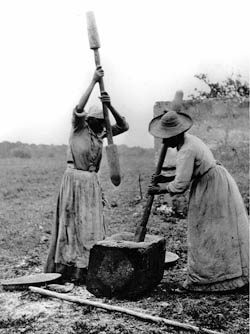It started rummaging for records and relatives, because I did not want to be a white American.
It started with the chart on the wall, held up in a cheap poster frame. Inez Meeker. Amarantha Borealis Corintha Delphina Rogers. Who has a name like that? And moving on to the pale gray binder in the attic, filled with printouts from a 1990s inkjet printer on spooled paper with crimping at the edges. Catharina Schmutter. Margarethe Schmidt. Southern Germany, 1700s. Nothing here.

When the internet appears, more searching. Celia Lowe – there’s a black one and a white one, some county, same era, same age. Jane Eaglefeather – no a mythology. Ruhama Nichols, abducted by the Wyandot. But nothing, nothing to connect white to black to history.
But I don’t find a single token ancestor of color. It seems the ties or non-ties were all social. I feel like only part American, being all-white.
Inheriting the Trade*
I’ve probably traced 500 direct ancestors, itself a white privilege. And then, after ten years of research, I come across William Perrin, a South Carolina slave owner. His father’s property in 1774 is assessed as:
Inventory, dated May 2, 1774: Charlotte Co., included the following: A Negro wench Amey, a Negro boy Ned, a Negro wench Pallace, a Negro boy Tom, a Negro girl Lucy, a Negro boy Jack, a Negro boy Peter, a parcel of working tools, 3 beds and furniture, a parcel of books, fire tongs, shovel, & other trumpery, a looking glass, a parcel of Delph cups, boxoles, & plates, 3 beehives. Total value: 401 pounds, 15 shillings, 3 pence. Signed by Sherwood Pearson, Thomas Ligon, and Joel Cheatham.
I’m not sure quite how to assess the economic value (?!) of human beings. But as Ed Crews notes in the context of Colonial Williamsburg, different economic systems and ways of living make a simple price conversion rather unhelpful.
Later, I find that my distant ancestor’s, Thomas Chiles Perrin, was one of the first signers of South Carolina’s motion to secede from America, sparking the Civil War. As a young man, his mother owned 43 slaves; he attended South Carolina College with slaves nearby to wash clothes and serve food (see more here). His descendants note at FindaGrave.com that he was “zealous in good works,” but doesn’t mention the slaves.
Thomas Chiles PerrinAt any rate, now I find I can’t simply escape being a white American by the inclusion of an Other ancestor, any more than black American intellectuals report escaping their American racial identities through travel or focus on other ancestors.

What to make of this? On the one hand, it’s easy to argue that only .05% of our ancestors might have been slavers, while others were abolitionists. Should we be responsible? Our poor white ancestors were enslaved too–does that free us?
Yet when our pretty genealogies are dismantled, we realize that America has used race to sort people into groups. That means we inherit a history of native peoples slaughtered for some of our ancestors’ expansive gain, Africans enslaved for the economic benefit of whites, and continuing obstacles to equality for people who are ‘not white’ in America.
I’m interested in the stories of the past– but it’s true that people like me already tell a lot of stories. We’re lucky to have a lot handed down. But when we start to uncover all different sides of the communities our ancestors lived in, I’m not sure it’s enough for us to just talk about our “direct” ancestors. We might need to look at the communities they lived in, and everyone involved.
I don’t have any direct answers, but I’d recommend reading Inheriting the Trade, in which Tom DeWolf explores his ancestor’s massive profit gained by trading slaves along the Eastern seaboard. He later met Sharon Morgan, who descended from slaves of his family. They wrote Gather at the Table to talk through what it means to be descended from slaves and slaveowners in America today. I highly recommend both books as an starting point for thinking about this stuff today. And I also recommend Privilege, Power, and Difference as a way to better understand how even we ‘virtuous’ or unprivileged white people still benefit from indirect privilege–and what we can do to make our society better for everyone, black and white.
